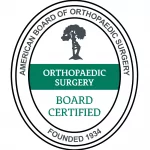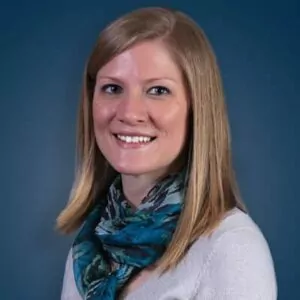Dr. Watson’s clinical interests include adult and pediatric conditions of the upper limb, such as arthritic and post-traumatic reconstruction, microvascular surgery, and treatment of complicated fractures.

Jeffry T. Watson, MD
BOARD-CERTIFIED ORTHOPAEDIC SURGEON

Areas of Interest
- Hand & Upper Extremity Surgery
- Trauma
- Arthritis & Carpal Tunnel Syndrome
- Tendon Lacerations
Education & Training
Fellowship
Hand & Upper Extremity, Washington University School of Medicine, St. Louis, MO
Residency
Orthopedic Surgery, Parkland Memorial Hospital / University of Texas Southwestern Medical School, Dallas, TX
Internship
General Surgery, Parkland Memorial Hospital / University of Texas Southwestern Medical School, Dallas, TX
Medical School
University of Texas Southwestern Medical School, Dallas, TX
Undergraduate
BA in Arts with Major in History, Baylor University, Waco TX
Philosophy of Care
I want to give my patients an informed and honest clinical experience. This involves educating them regarding the diagnosis (which may not always be immediately clear) and presenting them with a ‘menu’ of treatment options based on the best and most current information we have from clinical and science research. That is the only way to allow patients to make an informed decision.
While most maladies can improve with non-operative management, some issues are simply surgical problems. For example, in scenarios such as tendon lacerations, I believe it is a disservice to pursue a prolonged course of non-surgical treatment. As surgeons, it’s our responsibility to educate patients and offer our insight to arrive at the best option.
Distinctions
Board Certified
American Board of Orthopaedic Surgery
Certificate of Added Qualification in Hand Surgery
Awards
Kenneth Johnson Award for Teaching Excellence, June 2005 and June 2010
Top Doc, Colorado Springs Style Magazine 2014, 2015, 2016, 2018, 2020, 2021, 2022, 2023
More about Dr. Watson
Dr. Watson joined Colorado Springs Orthopaedic Group in April 2013 following 11 fulfilling years as a hand and upper extremity surgeon at Vanderbilt University in Nashville, Tennessee. While at Vanderbilt, he developed and directed separate adult and pediatric brachial plexus programs, which involved early neurosurgical intervention, delayed orthopedic procedures, and nonoperative optimization through therapy.
Dr. Watson is also experienced in congenital conditions and upper limb development. An avid participant in resident and fellow education, he remains involved with academic interaction at the local and national level.
Dr. Watson relocated to Colorado with his wife, Dawn, and their two sons. His outside interests include running, his dog, and aviation.
For more information on our hand and upper extremity specialists, check out our Hand, Elbow, and Nerve Center site, here. If you would like to meet Dr. Watson, give us a call today at (719) 632-7669, or request an appointment.
PATIENT REVIEWS
Medical Minute with Dr. Watson, MD
Learn more about CSOG

Megan M. Perry, PA-C
Physician Assistant to Jeffry T. Watson, MD
Areas of Interest
A move from Chicago brought Megan to Colorado Springs Orthopedic Group and a job assisting Dr. Watson and Dr. Cassidy with the hand and upper extremity specialty of orthopedics. She is also passionate about bone health and actively educates patients on how to stay healthy.
Education & Training
Graduate
Master of Physician Assistant Studies, Midwestern University, Downers Grove IL
Undergraduate
BS, Biomedical Sciences, Marquette University, Milwaukee WI
Distinctions
Certification
National Commission on Certification of Physician Assistants (NCCPA)
More about Megan
Megan was born and raised in Chicago, Illinois. While attending Marquette University, she also worked as a teacher’s aide in the human gross anatomy course. Her interest in healthcare was enhanced by two medical mission trips to Honduras where she was part of a group of students and physicians who provided medical care to the impoverished Honduran population.
After graduating and becoming a certified physician assistant, her first job was at Midwest Orthopedics at Rush where she worked with a physician who specialized in minimally invasive spinal surgery.
Megan and her husband Steve moved from Chicago to Colorado Springs in the spring of 2012. They both love the outdoors and have been taking full advantage of all Colorado has to offer including fishing, hiking, and mountain biking.


